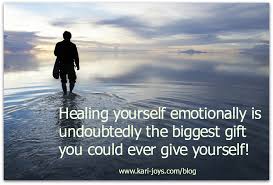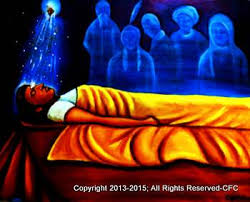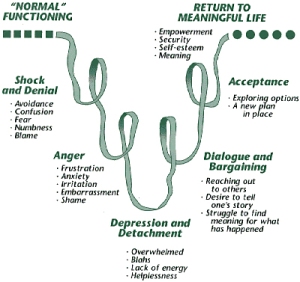
In my journey through grief I stumbled upon a great article that really defines our journey through the mourning process— taking us somehow from dark to light.
Tons of therapy helps of course– but embracing the pain and pushing through it is how we grow.
I miss my mother everyday.
Everyday.
But I know that she would want me to thrive.
I’m still trying.
Please read ahead:
Adversity is of value because it often helps us grow more mature. How does this work?
Human psychology is concerned, at heart, with loss and the threat of loss. So it begins with desire, and with the consequent forming of attachments to all manner of people and things: to places, wealth, objects, activities, ideas (including political and religious ideas); to anything under the sun.
The converse of desire is aversion. They go together. If you like something, you are averse to losing it. If you dislike something, you desire its absence. Likes and dislikes are part of being human. No-one avoids desires and attachments, or the painful emotional consequences. However, we can learn to manage them wisely. It helps a great deal to understand the process, as follows.
Let’s say you own a costly diamond, and keep it locked away. Your desire for the precious gemstone and attachment to it naturally spark the emotions of anxiety and doubt. You have heard that thieves are operating in the area, and are uncertain, possibly to the point of bewilderment, about how best to protect your possession.
Anxiety, bewilderment and doubt are the first emotional responses to the threat of loss. As threat intensifies (when, say, attempts are made to break in and steal the jewel), angercommonly arises. Your security is threatened. Your people are threatened. Your ideas about yourself and the world may feel threatened too. Defiance, resistance to loss, gives birth to these feelings of anger.
Eventually, your defences are breached. Let’s say the theft actually takes place. Anger persists for a time as the reality and extent of the loss sinks in. Feeling responsible; that you could and should have done more to prevent the intrusion, for example; you begin to experience the emotions of shame and guilt. Finally, in full face of the loss, realization dawns upon you. When forced to accept the reality of it, with nothing left to do to reverse the situation, nothing left to say to justify it, only sadness remains.

Playing the Musical Scales
These painful emotions are linked. Like the colours in a rainbow or the notes of a musical scale, they set each other off. Happily, this is not the end of the story.Grieving is a process that eventually leads not only to healing but also to personal growth. Each painful emotion is related to a pain-free counterpart, as follows:
Spectrum of Painful and Pain-free Emotions
Wanting (desire) – Contentment
Bewilderment – Clarity
Anxiety – Calm
Doubt – Confidence
Anger – Acceptance
Shame – Worth (self-esteem)
Guilt – Innocence (purity)
Sadness – Happiness (joy)
Real sadness is accompanied by tears, by weeping. This liberates emotional energy that was previously invested in attachment to whatever has been lost. An emotional cleansing (‘catharsis’) occurs, and results in a renewal of energy. With this natural and healthy re-charging of the emotional batteries, sadness turns spontaneously into its polar opposite,joy. Guilt and shame revert in a similar way to self-esteem and a sense of purity. Anger likewise switches over from resistance towards acceptance. Anxiety becomes calm. Doubts fade, leaving a sense of certainty. Bewilderment evaporates, leaving clarity. Finally, with full acceptance of the loss, desire is replaced by contentment. Calm, joyful satisfaction is felt with things just as they are… Until desire and aversion take hold once again!
We go through this sequence towards catharsis, healing and growth frequently, in small things and on the grand scale, whenever threats and losses are experienced and weathered. The emotional release, as the process resolves, leaves us more alive, more spontaneous, less fearful, and better able to stay clearly focused in the present moment.Personal growth like this is usually permanent and cumulative. We continue to build our strengths and our virtues. It may feel like it sometimes, but we are not designed to go backwards.
For those already mature enough to let go easily of their attachments, happiness arises with, or even ahead of sorrow; so laughter works to unlock the emotions as well as, or even better than, tears. The mental clarity associated with such emotional healing fosterswisdom and creativity. Other people, no longer experienced as competitors, are now seen as fellow strugglers and sufferers on life’s difficult path. This insight then fosters a rise in fellow-feeling, selflessness, compassion, wisdom and love. When someone faces and accepts a loss, and weathers the emotional whirlwind that follows until calm is once again restored, everybody benefits. That’s what I call maturity!
Emotional healing and spiritual growth





